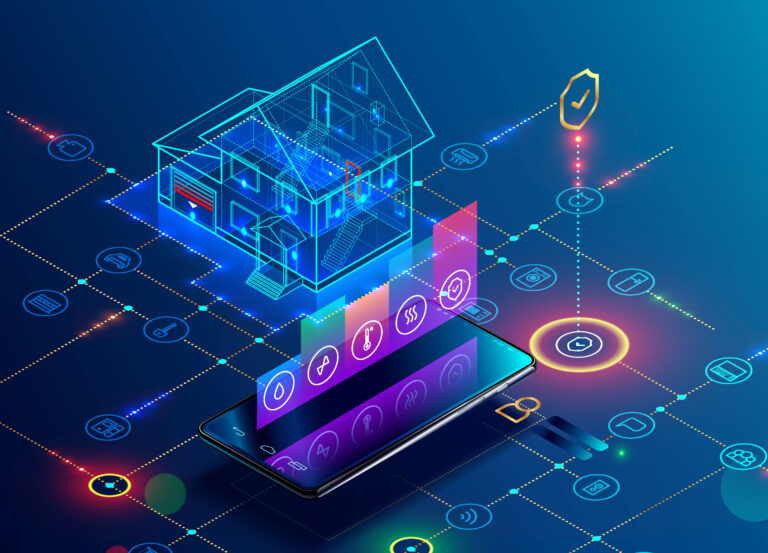
The internet of things (IoT) is changing the way we interact with technology in our daily lives, and nowhere is this more apparent than in our homes. As more and more devices become connected to the internet, our homes are becoming increasingly intelligent and responsive. In this blog post, we’ll explore how the IoT is changing how we live in our homes.
One of the most significant ways that the IoT is transforming our homes is through smart home automation. Smart home automation systems allow us to control and monitor various aspects of our homes, including lighting, heating and cooling, security, and more. With these systems, we can use our smartphones or voice assistants to adjust settings, receive alerts, and even monitor our homes while we’re away.
One of the most significant benefits of smart home automation is convenience. With these systems, we can automate routine tasks, such as turning on lights or adjusting the thermostat, freeing up time and energy for more important things. We can also set up custom routines and schedules, ensuring that our homes are always comfortable and secure, without the need for constant monitoring.
Another benefit of the IoT in our homes is energy efficiency. Smart home automation systems can help us optimize energy consumption, by automatically adjusting settings based on factors such as occupancy, weather, and energy prices. For example, a smart thermostat can learn our preferences and adjust the temperature accordingly, reducing energy waste and saving us money on utility bills.
The IoT is also revolutionizing home security. Smart home security systems can monitor our homes for intruders, smoke, carbon monoxide, and other potential dangers, alerting us and emergency services if necessary. These systems can also include cameras, motion sensors, and other surveillance technology, allowing us to monitor our homes from anywhere, at any time.
Smart home automation can also help us improve our health and well-being. With the IoT, we can track and monitor various aspects of our health, such as sleep patterns, exercise, and nutrition. We can also use connected devices, such as smart scales or blood pressure monitors, to track our progress and receive personalized recommendations. Additionally, smart home technology can help us create a more comfortable and healthy living environment, by adjusting lighting, humidity, and air quality to promote better sleep, relaxation, and mental health.
However, there are also potential drawbacks to the IoT in our homes. One concern is privacy and security, as connected devices can potentially be vulnerable to hacking or data breaches. Additionally, the increasing reliance on technology in our homes may lead to a loss of human connection and social interaction.
In conclusion, the IoT is transforming the way we live in our homes, by making them more convenient, efficient, secure, and healthy. With smart home automation systems, we can control and monitor various aspects of our homes, from anywhere, at any time. While there are potential concerns with the IoT, the benefits of this technology are significant, and we can expect to see even more advanced and integrated smart home systems in the future. As we continue to embrace the IoT, our homes will become more intelligent, personalized, and responsive to our needs and preferences.


Lemos Heating & Air is now Rellaire! CA Customers, Call: 916.659.8060